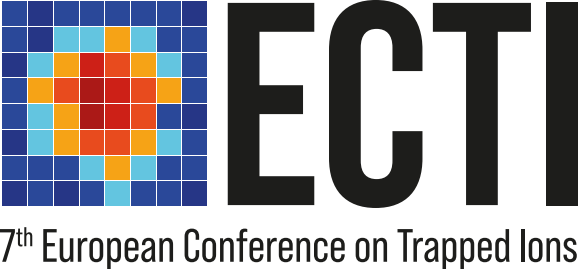Speaker
Description
In the long-term, fault-tolerant (FT) quantum information processing is the central promise to demonstrate a quantum advantage for practical problems. However, in the current era of Noisy-Intermediate Scalable Quantum (NISQ) devices, low distance quantum error-correcting (QEC) codes and quantum error mitigation methods pave the way to today’s quantum reliable hardware. Unlike QEC techniques, error mitigation methods allow mitigation of the effect of noise with no or fewer hardware overhead.
Trapped-ions lie among the most promising platforms for several applications of quantum technology. High-fidelity state preparation, measurement, and single-qubit rotations with trapped-ions have already been demontrated whilst entangling errors remain the major bottleneck. Increasing the fidelity of two-qubit gates is crucial for exploiting maximally-entangled states which are an important resource across several modalities of quantum information processing. However, due to imperfections during or after the entangling gates used to prepare such states, the amount of entanglementdecreases and their quality as a resource gets degraded.
Amplitude damping is an important mechanism of decoherence that is common to many atom-based platforms that can affect entangled states. For example, the T1-time sets the ultimate decoherence limit for trapped-ions optical qubits when all other sources of technical noise are suppressed. It can become relevant for trapped-ion hyperfine or Zeeman qubits when using two-photon Raman transitions via auxiliary excited states, or in Rydberg-atom quantum processors where several spontaneous emission decay channels limit the two-qubit gate fidelities. We introduce in [1] a low-overhead protocol to reverse this degradation by partially filtering out amplitude damping noise. In [1], we present two trapped-ion schemes for the implementation of a non-unitary probabilistic filter against amplitude damping noise, which can protect any maximally-entangled pair from spontaneous photon scattering during or after the two-qubit trapped-ion entangling gates. This filter can be understood as a protocol for single-copy quasi-distillation, as it uses only local operations to realise a reversal operation that can be understood in terms of weak measurements.
[1] Suppressing Amplitude Damping in Trapped Ions: Discrete Weak Measurements for
a Non-unitary Probabilistic Noise Filter, A. Rodriguez-Blanco, K.B. Whaley, and A. Bermudez PRA 107, 052409 (2023)

